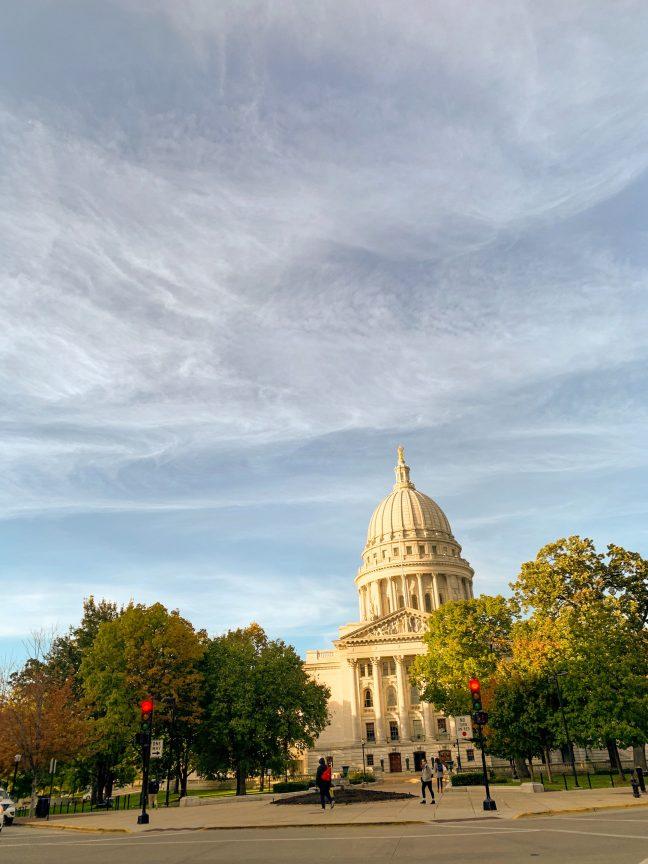State legislators and nonprofit clinics are working to help those who struggle to obtain and maintain health insurance.
There are about 99 free clinics in Wisconsin, according to the Wisconsin Association for Free and Charitable Clinics website.
The Community Connections Free Clinic, in Dodgeville, is open every Tuesday through Friday. The clinic doesn’t allow appointment scheduling, but registration starts at 4 p.m.
Rebecca Steffes, a registered nurse at the clinic, said the most patients they can see in a night is about 18, but that’s pushing providers hard.
“We haven’t done it too much, but the last couple of times we’ve been turning people away,” Steffes said.
There are about 90 volunteers, Steffes said. This number includes nurses, patient registration, lab and pharmacy technicians, prescription assistants, interpreters, and special project volunteers, according to the clinic’s website.
The clinic’s goal is to connect patients to more permanent services because the clinic’s services are limited. It has a partnership with Oregon Mental Health Services, which offers free mental health assessments and counseling services.
The clinic also offers a “free clinic on wheels.” The clinic insures a bus loaned by a Head Start program and visits community members on farms to address their health concerns and needs.
Steffes acknowledged it takes time to go to the doctor.
“If we could meet people where they are at, we can at least start conversations and answer questions,” Steffes said.
It’s also an opportunity to catch chronic diseases at the beginning and educate people, Steffes said.
The MultiCultural Outreach Program strives to “provide needed support” to southwest Wisconsin’s immigrant population, according to its website. The program identifies farms who are interested in receiving care, passes the information to the clinic and the “free clinic on wheels” goes to the farm.
The volunteers are not required to work a specific amount of hours. Volunteers usually come in once or twice a month, although there are some who have regular shifts every week, Steffes said. The number of hours fulfilled is important for receiving grants, she added, because it shows work being completed.
All funding comes from private individuals and organizations, and two annual fundraising events.
This clinic does not accept those covered by BadgerCare but will assist them in connecting to health care providers and provide medical care in the meantime, Steffes said.
Free clinics are not regulated by a state entity. There tends to be a lot more oversight with a clinic that collects money, such as medical bills, Steffes said.
The Community Connections Free Clinic is a member of the Wisconsin Association of Free and Charitable Clinics, which developed “Standards of Excellence” for clinics to follow, according to its website. The standards provide direction for goal setting, planning and evaluation, and guides projects and actions.
The clinic also has their own in-house policies.
About 4% of Wisconsin residents did not have insurance for the entirety of 2018. That’s about 234,000 residents. About 3% of residents didn’t have insurance for part of 2018 for a total of about 168,000 residents, according to the Wisconsin Family Health Survey 2018 results.
Medicaid provides healthcare coverage to low-income adults, children, pregnant women, elderly adults and people with disabilities, according to the Medicaid website. It exists at a federal level, but states can choose whether or not to use it. It’s funded by both states and the federal government.
State Rep. Melissa Sargent, D-Madison, said in an interview with The Badger Herald those who don’t have health insurance are costing the state more money because they’re using emergency room and primary care services.
Thomas Oliver, a University of Wisconsin professor in the School of Medicine and Public Health, said history is on the side of Medicaid expansion. Wisconsin is one of 14 out of 50 states that has not accepted the expansion, according to the Kaiser Family Foundation’s website.
“That’s almost three-quarters of the states that are in that,” Oliver said. “And that includes a lot of states that are led by republicans.”
Even if legislators don’t approve of government expansion, they may like the appeal of balancing the budget and keeping taxes as low as possible, Oliver said.
States who accept the expansion are able to provide a very broad range of health services, such as mental health and prescription drugs, for people who are in the low-income tier, Oliver said.
Due to the large amount of money that goes into Medicaid, legislators can choose the expansion based on either health or budgetary reasons, Oliver said.
“Those might appeal to different legislators, officials and the governor,” Oliver said.
If the government has to spend money on those who are uninsured or give treatment in urgent situations without receiving compensation, it becomes an issue both parties care about, Oliver said.
It’s hard to justify not participating in the expansion when the government is receiving federal funds, Oliver said.


